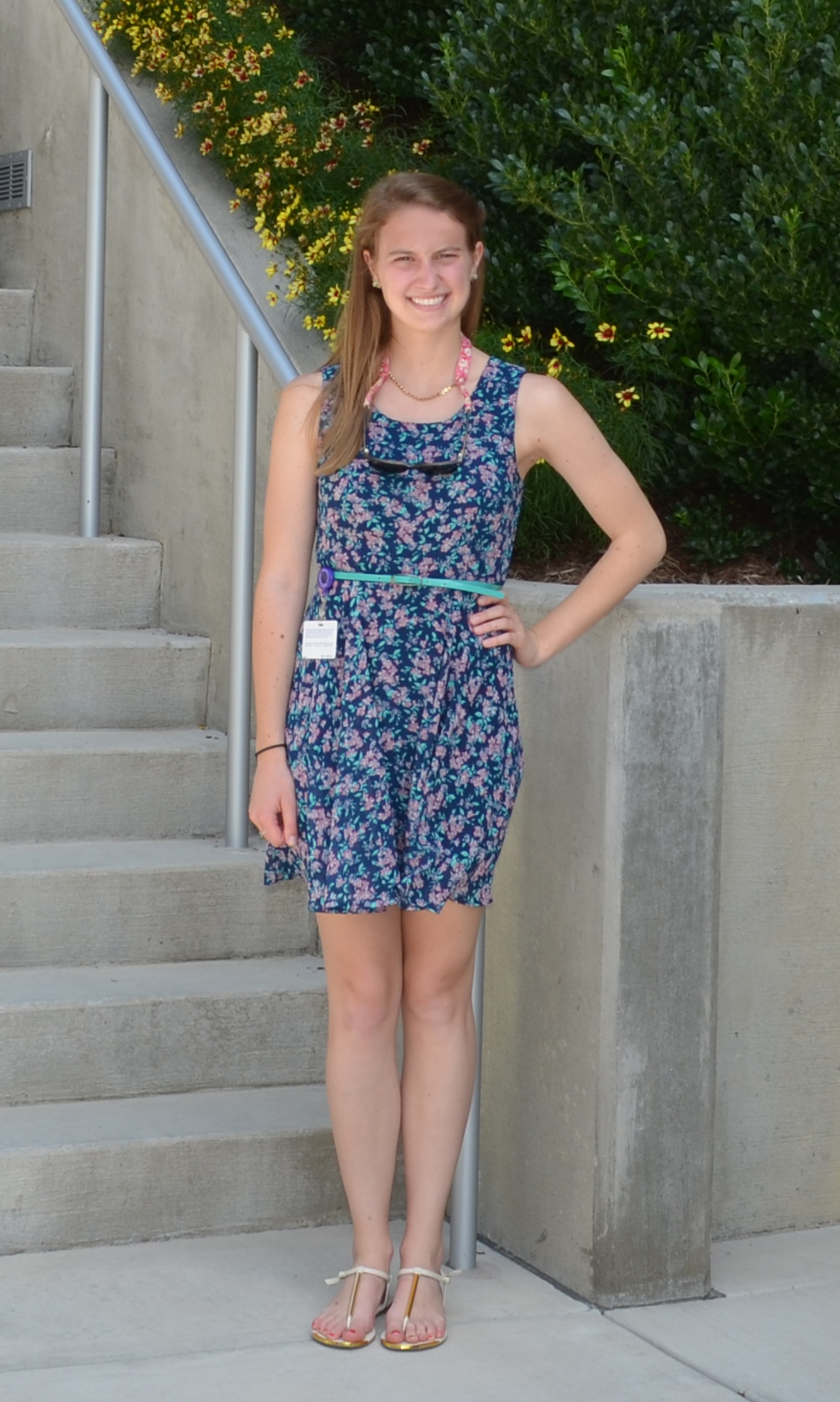Summer undergraduate research: Student investigates a less invasive way to analyze the brain that may benefit future veterans research

“I want to make prosthetics. That’s my end goal. But I figured you can’t make a prosthetic for someone if you don’t know the person who is going to be using it,” Stephanie Wiltman of Sewickley, Pa., a senior double majoring in materials science and engineering in the College of Engineering and psychology in the College of Science, said.
Wiltman’s dual background made her a perfect fit for the Scieneering program. A prestigious Howard Hughes Medical Institute Science Education Grant funds the undergraduate research program. Through a combination of course work and research experiences, students are exposed to interdisciplinary work combining science, engineering, and law.
“Scieneering is a fantastic program, taking engineering students who are interested in science and vice versa,” Brooks King-Casas, assistant professor at the Virginia Tech Carilion Research Institute. King-Casas is Wiltman’s faculty mentor for her research this summer. “Stephanie is bringing us a different perspective to the work that she’s doing than some of the psychology students we’ve had work with us in the past so I can see how it is fruitful on both ends.”
Researchers at Virginia Tech Carilion Research Institute use functional magnetic resonance imaging (fMRI) machines extensively to monitor brain activity in a variety of circumstances. This summer, Wiltman is testing how another device, a functional near-infrared spectroscopy, or fNIRS, may be used for some studies instead of, or in addition to, the fMRI.
“The fNIRS device is a band that goes on your head that shoots infrared waves into your brain. Depending on how much of that light is absorbed versus reflected the device tells how much oxygenated blood is in that area. That correlates to how much you are using that part of your brain,” Wiltman explained.
The limitation of the fNIRS device is that it can only read blood levels a centimeter or two inside the scalp, while the fMRI can look at the entire brain. For certain tasks that are known to activate parts of the brain near the scalp, fNIRS could be a good option for research because it is portable, unlike an fMRI. It also is less invasive for some people who may feel uncomfortable getting in an fMRI.
In particular, the fNIRS could be an option for studies on veterans, especially those with PTSD. “A veteran may say they are fine in closed areas. But once they get in the fMRI and there are all of these booms and bangs from the machine, they can get them worked up. That’s what we are trying to avoid.”
This summer, Wiltman will not work with veterans specifically, but instead on if the fNIRS accurately collects data about the brain during social learning tasks.
“We are looking for how we develop expectations about what a social partner is going to send to us and how we update those expectations based on the ongoing interaction,” King-Casas said. “In another study we found that really depends on the type of person you are. Those who are cooperative or those who are competitive have a different type of neural signal that is evident in the front part of the brain.” The location of activity – near the scalp – is a good region for the fNIR to analyze.
Wiltman hopes her baseline research this summer could open doors to future research with veterans, a special area of interest for her, particularly after an “eye-opening experience” last summer. Through a University Honors’ Sophomore Scholarship, Wiltman shadowed at the Naval Medical Center in Portsmouth, Va. Her experiences ranged from scrubbing in for a leg amputation, physical and occupational therapy, and time in the psychiatric wards.
“Because of my experience with the Navy, my interests and my passions kind of left prosthetics and the engineering itself, and now I am much more passionate about just helping these people in any way I can,” Wiltman said. “I gained an incredible respect for soldiers, the military, and their families.”
While Wiltman still has two more years to wrap up her double major requirements, she hopes the skills she is gaining now – through undergraduate research, classes, and other experiences – will translate to a career working with veterans in some way. Whether that will be as a prosthetic engineer, working with veterans one-on-one, or for a private firm that makes plastics for prosthetics, she is willing to dive in wherever she can make a difference.
During the summer of 2013, more than 250 students are taking part in undergraduate research experiences through more than a dozen programs on campus. The Office of Undergraduate Research is coordinating workshops and activities for the programs' participants through the summer. Students will present their work at the Virginia Tech Summer Undergraduate Research Symposium on Wednesday, July 31.







